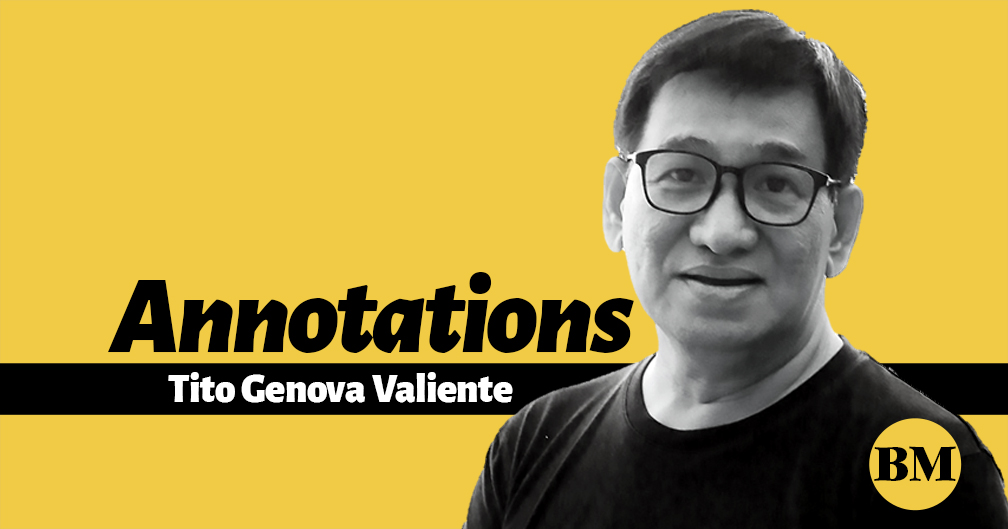
How much do we know about our cultures? The question looks rhetorical but consider it a direct affront to us. If we—“natives” and inhabitants—do not study our cultures, then how can we understand it? Without such understanding, how can we ever own it?
The question of cultures is a crisis in discipline. To those who believe in history (not even histories), the sources are historians, whose sources of facts and ideas are archives. Around us abound policies and programs that are informed by historical facts. Suffice it to say that there is a cluster of discipline that critiques historical thinking as in Walter Benjamin’s notion of dialectical thinking and textured historicity. In this approach, the past, the present and the future are apprehended in dreaming state: the present has been dreamt of in the past, and present tosses itself into the future, which is now dreamt of. But what about those who take cultures and our understanding of it as a path to forming an identity, generating a critical mass for nation formation, where do we situate ourselves in our search for a definition of cultures? While it has always been accepted that defining culture has always been the province of anthropologists, anthropology was the methodology that dominated the discourse of cultures.
When one thinks of a place—be it a village, a town or a tiny island— one is immediately buoyed by the notion that we can learn “something” about it. The method to learn about the culture of that place is through ethnography, a method that is so popular (in terms of familiarity) that even non-anthropologists resort to the approach. It is Bronislaw Malinowski, however, who is credited for inventing the term “ethnography.” Freely using ethnography with the anthropological enterprise, Malinowski in Argonauts of the Western Pacific is known for emphasizing a fastidious participant observation so that the researcher can capture the “imponderabilia of everyday life.” He was also adamant in the anthropologist seeking to get the native exegesis, the native’s perspective.
The student of anthropology, however, must have known by this time that, after the death of Malinowski, his wife stumbled upon a diary showing his strong aversion against the “natives” whose lives he fastidiously praised as important not only to themselves but to the anthropologist’s body of knowledge. That must have been a foreboding of the future when anthropologists presently critique their training and the skills they have developed for data gathering and analysis.
Have the books discussing our place and its cultures really captured the cultures of our human group? Having responded to the identities defined in such documents, what are we to do now that ethnography is not merely immersing and doing fieldwork?
What triggered these questions is this book, Anthropology and Ethnography are Not Equivalent, edited by Irfan Ahmad. The book itself is a response to the paper of Tim Ingold entitled “That’s Enough About Ethnography.” For Ingold, according to Irfan Ahmad, “a monograph that records ‘the life and times of a people’ may justifiably be called ethnographic.” However, according to Ingold, “it is misleading to call our encounters with people, to the fieldwork in which these encounters take place, to the methods by which we prosecute it, or to the knowledge that grows therefrom, ethnographic.”
Throughout the said book, the topic of objectification surfaces. One of the authors in the collection, Hatsuki Aishima, quotes Ingold in his differentiation between anthropology and ethnography, where the latter aims to describe in detail and with accuracy a sociocultural phenomenon, while anthropology “seek[s] a generous comparative but nevertheless critical understanding of human being and knowing in the one world we all inhabit.”
For Ingold, a position Aishima appears to espouse, anthropology is “a practice of observation grounded in participatory dialogue.” This brings to the fore the old caricature of the anthropologists as smug and detached. We are seeing in this book a new claim that eschews the practice of making field sites as “sites” or “cases.” What the book asks us is to build a discipline that, following Aishima, is an enterprise with rather than of.
Aishima in the chapter, Correspondence, echoes Ingold describing anthropology as “essentially a mutual learning process, not mere ethnographic data gathering and writing about them.”
Rethinking thus, we need to ask what happens now to the bulk of materials on Philippine cultures written by social scientists that did not even get to know the local language? What level of participation must have been achieved by those whose grants allowed them to immerse but for a minimal exposure?
The notion of the expert is now suspect. Aishima mentions Arjun Appadurai and others whose critique of anthropological techniques surfaced individuals treating places and people as fieldwork sites that are isolated, seemingly detached from other societies. This is ironic because nothing much is really produced in the field, with the anthropologists leaving the area and writing the report far, far from the field, in the comfort of their home, the documentation interrupted by the regular sessions of individuals in the coziness of their own spaces.
The crisis is even deeper upon realizing how, following Aishima reading Ingold, there is a gap, a “fictional boundary we construct between ‘ethnographic data’ we gather in the field and ‘knowledge’ we impart in lecture halls.”
Are we living then within that which we define, or do we define that where we find ourselves in? Oh, that sounds like philosophizing, a discipline that has not questioned itself yet. Let us be grounded and go back to cultures instead.
E-mail: titovaliente@yahoo.com
Image credits: Jimbo Albano




























